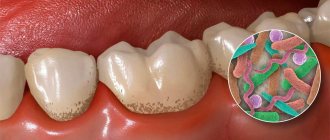A little physiology
The endometrium is the mucous membrane of the uterus that lines the organ from the inside. The shell is supplied with a large number of large blood vessels. Its main task is to create favorable conditions for implantation of the fertilized egg. The average normal thickness of the endometrium is 7 mm. Both thickening and thinning of this layer lead to failure in conception.
Normally, the endometrium consists of two layers - basal and functional. The main feature of the endometrium is its very high sensitivity to monthly changes in hormonal levels. A new menstrual cycle begins with the rejection of the functional layer of the mucous membrane. Outwardly this is manifested by menstruation. The concentration of hormones is at a functional minimum. After the end of menstruation, the concentration of estrogen, which is responsible for the growth of the endometrium, begins to gradually increase. The functional layer is gradually restored - this is the regenerative phase of the menstrual cycle. At the same time, a follicle matures in one of the ovaries.
Approximately in the middle of the cycle, when the amount of estrogen is at its peak, ovulation occurs - a mature egg is released into the abdominal cavity, then into the ampullary part of the fallopian tube, where conception occurs.
In place of the burst follicle, a corpus luteum appears, producing progesterone. Under its influence, glands begin to mature in the endometrium - the mucous membrane prepares for implantation of a fertilized egg. If conception does not occur, the levels of progesterone and estrogen begin to gradually decrease. As soon as it reaches a minimum, the functional layer will begin to be rejected again. A new menstrual cycle will begin.
Changes in the uterine mucosa during the cycle
What does polycystic ovary syndrome mean?
With some disorders in the body, the walls of the ovary thicken, as a result, a mature egg - a follicle - cannot leave it and enter the uterine cavity for fertilization. Remaining in the ovary and filling with fluid, the egg eventually turns into a small cyst.
Since this process is repeated many times, many such cysts are formed, and the phenomenon associated with this is called polycystic ovary syndrome. As a result, the maturation of eggs and the ovulation process are disrupted - the most common cause of infertility, which can be successfully treated and eliminated.
Diagnostics
Diagnosis of thin endometrium is based on three principles:
- interviewing the patient;
- gynecological examination;
- additional examination.
During the interview, the doctor details all complaints, clarifies their nature, time and possible cause of occurrence, and dynamics. This will be followed by a gynecological examination, during which the doctor may identify some causes of thin endometrium, such as underdeveloped uterus or congenital anomalies.
Additional research methods are used:
- flora smears;
- laboratory methods to identify the causative agent of infectious diseases;
- tests to determine the level of hormones in the blood;
- ultrasound examination;
- CT;
- MRI;
- hysteroscopy;
- diagnostic laparoscopy.
Based on the results of additional research methods, the doctor will make a final diagnosis and prescribe treatment.
Endometrial thickness in different phases
What is artificial termination of an unwanted pregnancy?
Medical termination of pregnancy is the early artificial termination of the development of intrauterine pregnancy. Another name for the procedure is much better known: “abortion.” It can be carried out at the request of the woman through or without surgery. It provides for comprehensive measures, including the following stages:
- preparatory diagnostic examinations;
- abortion;
- observation of the patient;
- psychological support (if required).
Treatment. How to grow the endometrium?
The first thing you need to do is change your lifestyle a little. Exercise daily - it increases blood flow in the uterus and helps build up the mucous membrane. Even a little physical activity (running, abdominal exercises, swimming) for half an hour helps improve the situation. If your work requires you to sit for long periods of time, try to get up and walk around for 3-5 minutes per hour.
Pay attention to your sleep - it should last at least 7-8 hours a day. The fact is that the balance of estrogen and progesterone is restored during sleep. Go to bed and get up at the same time, around 10-11 pm. Do not watch TV or read books in bed - the bedroom should be associated only with sleep. Develop certain habits that will help you fall asleep. This could be a warm shower, a massage session and other unique rituals. It is best to fall asleep in a cool and dark room.
Try to reduce the level of psycho-emotional stress. Chemicals produced during stress increase blood vessel tone and disrupt hormonal balance. As a result, blood flow in the uterus worsens and the endometrium becomes thinner. If it is impossible to completely get rid of stress, try to reconsider your attitude towards it, use various relaxation methods, for example, yoga, aromatherapy. This will help improve health and grow the endometrium.
Change your diet. Our diet significantly affects the possibility of conception. Increase the amount of whole grains, fresh vegetables and fruits, especially those rich in vitamin C, lean meats and fish. Limit or eliminate your intake of trans fats and processed foods as much as possible. Strictly dose the amount of simple carbohydrates, and you can build up the mucous membrane. Take herbal supplements. Unfortunately, herbal preparations currently do not have an evidence base. Nevertheless, many doctors advise their patients to take dietary supplements that promote the production of estrogen. You should consult your healthcare professional before taking dietary supplements. He will select the most effective means.
Increase vitamin E in your diet. The second name of the substance is tocopherol, or fertility vitamin. You can find it in various types of nuts, raw pumpkin, sunflower and sesame seeds, chard, spinach, mustard greens, parsley, avocado, olives, and almost all vegetable oils. The dose of tocopherol and duration of use should be obtained from your doctor.
To build up the endometrium, undergo an acupuncture session. Here it is important to choose the right specialist who is well versed in the localization of biologically active points responsible for blood flow. Acupuncture helps dilate blood vessels and improve blood supply to the uterus. As with taking dietary supplements, you should consult your doctor before undergoing acupuncture.
Avoid anything that negatively affects the condition of blood vessels:
- quit smoking;
- limit caffeine intake;
- anticongestants - vasoconstrictors, antiallergic.
See your doctor. Even if you have regular menstruation, but conception does not occur, this is a reason to visit a gynecologist. Infertility has many causes. The doctor will help determine exactly what your problem is and prescribe treatment.
Most likely, the doctor will recommend hormone therapy using estrogen. This could be a tablet, hormonal patch, gel, cream or spray. Treatment with estrogens is contraindicated in the presence of malignant diseases, an increased tendency to form blood clots, or drug intolerance. If you have one of these diseases or are allergic to any medications, be sure to tell your doctor before starting treatment. With your doctor's permission, take vasodilators. To grow the endometrium, you need to supply it with oxygen and nutrients. For this purpose, the doctor will recommend vasodilators. They improve blood flow in the uterus and promote endometrial growth. If you have symptoms of uterine endometrial depletion and are planning to have children, consult your doctor immediately.
Typical mistakes that prevent pregnancy
Having decided to conceive a child, the couple begins trying to achieve pregnancy. But it is not enough to know on what day of the menstrual cycle unprotected sexual intercourse should take place.
The likelihood of conception is influenced by many factors. If you don't get pregnant, you may be doing something wrong.
Let's look at typical mistakes that couples can make when planning a pregnancy.
Make an appointment
Low calorie diet
The body perceives a lack of calories as an existential threat. There is not enough energy and plastic material for the production of hormones, the normal functioning of the genital organs and the maturation of germ cells.
A prolonged calorie deficit is the easiest path to anovulation (lack of ovulation) and the inability to conceive a child.
In men, the normal process of spermatogenesis is disrupted. The amount of ejaculate and the normal forms of sperm contained in it decreases.
Therefore, instead of diets with a calorie deficit, it is worth creating a complete diet, the calorie content of which covers the energy requirement. It is worth remembering that it must contain proteins, fats and carbohydrates in sufficient quantities.
Vegetarianism
The basis of the structure of the body is protein. It is best absorbed from meat and meat products. In addition, the body receives the greatest amount of iron from food of animal origin.
Vegetarianism, although considered one of the healthy eating options, may not always meet the body’s need for protein. Plant protein has an inferior amino acid composition.
Therefore, if pregnancy does not occur, the reasons for this may lie in vegetarianism. When planning a family, you should temporarily abandon this diet. The same should be done during pregnancy if you do not want to harm your baby.
Sauna
The sauna improves blood circulation, which is very useful for any person, but not for the future father. After all, the male gonads that produce gametes are located outside the body for a reason.
Sperm are very sensitive to high temperatures, so nature has made sure that the testicles of men are exposed to temperature conditions no higher than 34 degrees.
If your wife does not become pregnant, you can increase your chances of conceiving by foregoing this pleasant health procedure while planning your pregnancy. After receiving the long-awaited result, he will be able to reward himself with a trip to the sauna, and it will be even more enjoyable after a long break.
Shower after intimacy
You conscientiously calculated the most favorable day for conception. We did everything to ensure that this time the pregnancy test was positive. But it turned out to be negative again. What is the reason?
One of the common mistakes is to immediately take a shower or bath after making love. Wait at least two hours, or better yet, even longer, for the male reproductive cells to arrive at their destination. They can be “helped” if immediately after contact the woman takes a position in which the pelvis is slightly raised. To do this, you can place a cushion under the buttocks.
Incorrect frequency of sexual intercourse
The maturation of both male and female germ cells requires a certain time. Everyone knows that it takes about 14 days for an egg to mature.
But only a few know that spermatozoa, which previously undergo the stages of spermatogenesis, “overgrow” with flagella and an acrosome in the lumen of the seminiferous tubule for another 3-4 days.
These organelles are very important in fertilization: the flagellum determines the motility of sperm and their ability to reach the oocyte. The acrosome contains an enzyme that dissolves the protective shell of the egg, due to which fertilization occurs.
When planning a pregnancy, take a break between episodes of intimacy. 3-4 days is quite enough - at longer intervals, stagnation and thickening of sperm occur, which negatively affects the viability and fertility of sperm.
If contact is too frequent (for example, daily), there may not be enough sperm or it will be too thin. Which also greatly reduces the chance of conception.
It is also important to take into account the days of the menstrual cycle that are most favorable for conception. Most often this is around the 10th to 16th days of the cycle.
Fruitless attempts for over a year
It’s not so scary if the couple who cannot conceive on their own for a year is young. But often problems with conception lie in wait for spouses who are of advanced reproductive age. And here it is important not to waste precious time.
With infertility, there is always a specific reason why conception is impossible. By postponing the search for this reason, spouses only aggravate the current situation.
If pregnancy does not occur for a year, in the future the chances of conceiving a child without the help of doctors do not exceed 10-15%. Therefore, it is better to contact a reproduction center, get tested, identify the cause of infertility and, if possible, eliminate it. Only after this will you be able to get pregnant.










